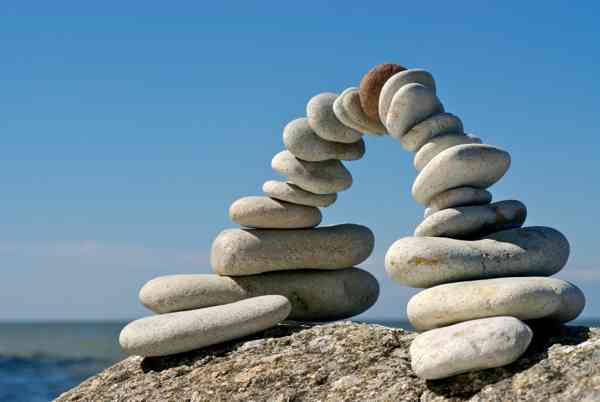When we work with others we get used to the incidental support that comes from having colleagues down the hall and a network of expectations from those we work with that pull us through the day. When I switched to being self-employed and working on my own it took some time to understand what behavior supported me. Here are some questions to help you explore your self-support habits. Each one of us needs something slightly different for support so it helps to do a review of your current habits first.
1. What do you need to start your day off right?
Even though we’re different some things are simply true. Breakfast is one of them; eat something, preferably more than just a muffin. Get enough sleep. Have a means of capturing your daily commitments and tasks.
Establishing a routine that prepares you for more engaged work, a warm-up, is useful too. My writing warm-up consists of Morning Pages, and a 10-Minute writing session with a short story prompt. Once I am warmed-up, I am ready to dig into work for clients, work on stories, polishing a blog post, or more work on my novel.
For some, exercise fits into getting the day started. For me this comes later on, as a break. Finding the right spot for exercise can help you establish it as part of your day.
2. How often do you need a break?
Some research suggests every hour; workshop leaders and trainers know that learners need a break at least every 90 minutes.
Writing, and other work on the computer is sedentary. Making sure you get up and move will increase your productivity and is better for your health.
If you know you’re not going to get to the gym, try developing some ten minute workouts that you can do throughout the day.
In addition to work breaks during the day, think about a weekly break. If you can give yourself a longer break once or twice a week, say lunch plus a walk, it can help renew your efforts.
Be aware of work tasks, projects, or social events that take recovery time and build that time into your schedule.
3. What do you need to fuel your work?
This is about eating to work (and enjoying it). Basically you use more energy thinking than plowing fields and the sharpness and clarity start to fade between three and four hours after you’ve eaten. Pay attention to see what refueling interval works best for you. Small meals work well, or a meal-healthy snack-meal pattern can work.
Remembering to drink enough water during the day is a challenge, but makes a big difference. Dehydration affects both thinking and energy.
If you are doing creative work it’s good to stay aware of what boosts your creativity (music, play with colours, seeing/hearing other’s work, meditation, movement). Build in time to replenish the inner resources that feed your creative output.
4. When do you need an outside opinion?
Once you’ve pulled things together and you feel you’re ready to share it with the world or your best client, you may want someone to provide some feedback. Identifying safe, confidential resources for this can provide help for your blind spots (we all have them) and give you a sense of whether or not you stayed on track and kept the work on target.
Develop some criteria for whom to ask and think about how you can develop reciprocity. You’re still out there on your own, but you will have ideas from outside your own patterns of thinking, and some folks who are already interested in the final result.
5. Where in your work will finding a mentor help?
Look for the area where you feel most challenged; where you know you need to grow; where you lack confidence; where you aren’t making the best use of your strengths and then look at the people you admire and whose work exemplifies where you want to go. Then ask. Suggest a framework for the mentoring work, and think about how you could make a contribution to what they’re doing. Take the time to build the relationship before you ask.
6. How do you network most effectively?
As an introvert my idea of a good time is time alone with a book. That said I love sharing information that will be helpful (my friends tell me I have the instincts of a librarian). My best networking happens when I have information to share with the group I am going to have an opportunity to meet. I am a flop when I don’t feel I have anything to give. I’ve found I need to do the research to make it worth my while. Even for an extrovert, it super-charges networking results if you do the research and prepare ahead of time.
A solid network is a huge asset when working on your own.
7. What administrative work keeps you in touch and what should be delegated?
When you start out you tend to do everything yourself. While you’re in the start-up phase it’s a good idea to log your reaction to tasks and note how you feel about them.
For some, doing the invoices helps keep you touch with what you’ve accomplished, for others it’s always on the bottom of the list and the accounting piece just makes you antsy. After a short while you’ll have a good idea of what you want to keep doing to stay in touch with key aspects of your business, and what to outsource once you have the cash.
8. What’s on your YES and NO Lists?
Your YES list has opportunities that connect with your goals, your joy, and your learning. Your NO list has the things you do that drag you down or suck time from what you really want to do.
As you become more successful you need to stay aware of both lists to give yourself support for saying NO to things that aren’t the best use of your energy and time.
9. Who is in your cheering section?
These folks can be real people you know (family, friends, mentors) or public figures you admire and want to emulate; even characters from books or movies (Charlotte from Charlotte’s Web).
10. What’s your celebration plan?
When you reach your goals, hit your targets, land the work of your dreams, you need to celebrate and share the good news. Have a plan, develop a ritual and enjoy your success.
You can also plan to share success by thinking about the group or organization you want to donate to when you reach your financial goals.
Once you know about what supports you, you’ll find even when you work alone you are connected.
Join the discussion: What activities support your work? How do you stay connected?

